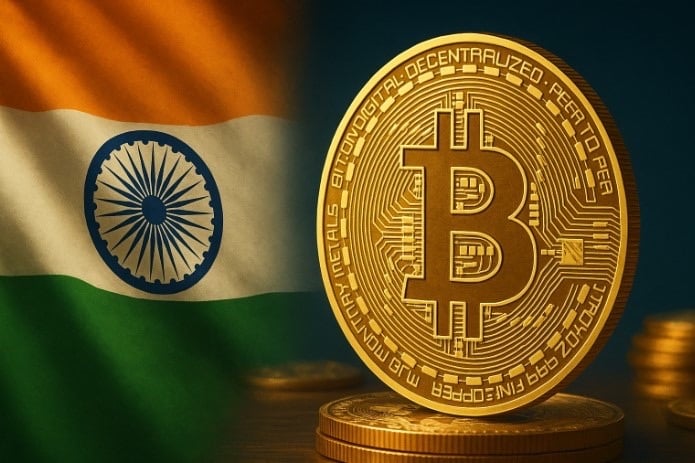Regulators in India have begun taking a hard look at how some of the country’s crypto exchanges actually run day-to-day. The worry is simple: a few of them might be making the same mistakes that brought down giants like FTX and Mt. Gox. Everyone remembers what happened there, poor transparency, customer money being used in ways it shouldn’t, and investors losing big in the end.
From what’s being said, this review is really focused on two things. First, how customer funds are stored. Second, whether the proof-of-reserves claims these platforms publish can be trusted. There are already hints that some deposits may have been mixed in with company accounts or even used for lending that wasn’t on the books. If that’s true, a liquidity crunch could leave ordinary traders badly exposed.
The Securities and Exchange Board of India (SEBI) and the Reserve Bank of India are both believed to be involved. While the Indian government has generally been cautious about crypto, demand has never really slowed down. In fact, more and more people want exposure to Bitcoin, Ethereum, and the newer altcoins. That constant demand means exchanges are always under pressure to deliver, even if it pushes them toward risky practices.
Why Regulators Stepped In
People close to the industry say the spark came from irregularities in routine audits. A few exchanges had insisted they were holding customer assets one-to-one in cold storage. But when auditors and tax officials checked blockchain wallets, the balances didn’t line up. That mismatch has raised doubts about proof-of-reserves reporting, something many traders use as a shortcut for trust.
The challenge is that there isn’t any clear law against moving deposits around this way. Enforcement agencies have admitted as much. They basically don’t have the tools to step in. This gap makes it tough for regulators to keep up with a sector that changes so quickly.
Why It Matters in India
The situation is particularly sensitive here. India already has heavy taxes on digital assets and has restricted how exchanges can process payments. If one of the bigger platforms were to collapse, it could give policymakers an excuse to bring in even tighter restrictions. That would likely scare off new companies and shrink the competitive landscape.
Yet despite all of that, Indian investors remain active. Crypto adoption in the country is among the highest worldwide. Many traders are asking themselves the same question: which platform can really be trusted, what is the best crypto exchange in India to trade on without worrying their funds will vanish?
What Comes Next
Analysts believe the outcome of this probe could reshape the industry. Platforms that prove they keep customer money separate, publish transparent reports, and follow solid governance practices might win bigger market share. Those that can’t will face consequences ranging from fines to outright closures, or even criminal charges.
The Bigger Picture
This isn’t just a domestic story. Other countries are watching how India handles the balance between investor safety and innovation. If the investigation ends with tougher compliance standards, regulators across Asia and maybe beyond could adopt similar rules.
The Takeaway for Traders
For everyday investors, the lesson is straightforward: stick to exchanges that are transparent and give you more control over your assets. Confidence in centralized operators has already been shaken, and interest in decentralized trading and anonymous crypto wallets with no KYC is growing. That shift isn’t only happening in India, it’s part of a wider global trend.
Best Anonymous Crypto Wallet For Indian Traders
With regulatory scrutiny rising in India, secure wallet solutions like Best Wallet that strike the perfect balance between anonymity, self-custody, and functionality are becoming more critical than ever.
Tailored to mobile users, Best Wallet delivers a privacy-focused experience that’s difficult to find elsewhere. Indian traders, as well as their counterparts worldwide, prefer it over CEXes and DEXes, as it doesn’t require personal details to begin using it – just download and start exploring both its basic and advanced features.
The absence of KYC ensures that users’ trading history and personal data remain private and are not subject to external oversight. More so, as a non-custodial wallet, Best Wallet ensures that users’ private keys stay on their device, meaning no outside party has access.
Security is strengthened through comprehensive encryption, fingerprint scans, and two-factor authentication. Additionally, the use of Fireblocks, a respected name in crypto security, provides an extra layer of protection for users’ assets without requiring personal data.
A standout feature is its multichain functionality, which lets users buy, trade, and swap thousands of cryptocurrencies across several networks. With a lofty ambition to enable support for over 60 chains, Best Wallet has already got the ball rolling by adding support for Bitcoin, Ethereum, Polygon, Binance Smart Chain, Base, and most recently, Solana.
As with previous additions, the next multichain rollouts will be delivered through a series of updates, steadily expanding its functionality. Beyond multichain expansion, Best Wallet is also focused on integrating other key features to enrich the overall experience of users. For instance, its recent 2.10 update introduced Bitcoin swaps, gamified rewards for active users, as well as support for the Korean language, amongst others.
Meanwhile, for Indian traders who are into early token grabs, Best Wallet caters to that through its “Upcoming Tokens” tool, empowering them to dive in quickly and make the most gains. Therefore, it’s a strong choice for those who need a feature-rich wallet that still respects their desire to stay out of sight amid mounting regulatory hurdles.
Download Best Wallet
This article has been provided by one of our commercial partners and does not reflect Cryptonomist’s opinion. Please be aware our commercial partners may use affiliate programs to generate revenues through the links on this article.
